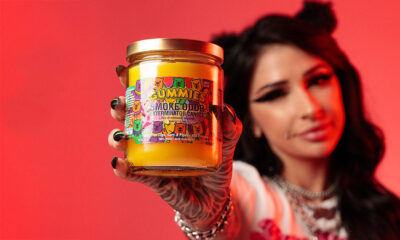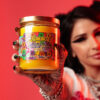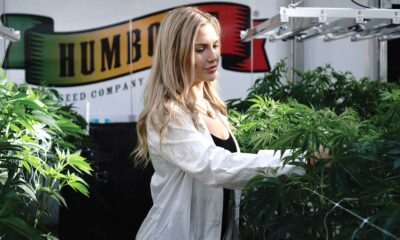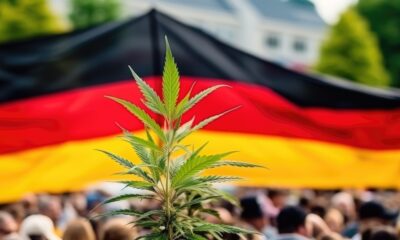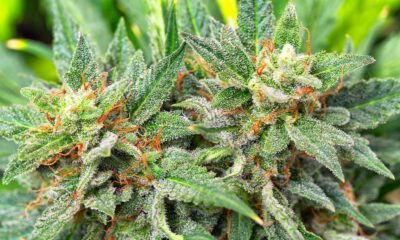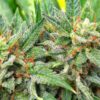
Joint Opinions
In Defense of Marijuana
Most of the civilized world calls the plant cannabis. In America, we’re different. But is “marijuana” a dirty word? Not inherently, no — and it shouldn’t be treated as such.
“La cucaracha, la cucaracha
ya no puede caminar
porque no tiene, porque le falta
marihuana que fumar.”
In a real way, “La Cucaracha” is the Mexican “Yankee Doodle.” Catchy ear-worms, easy to whistle or blow through a harmonica, both songs originated in revolutions. And like “Yankee Doodle,” you might not be immediately aware what “La Cucaracha” means —because competing forces struggled from the beginning over the ownership, leaving meaning hinging upon the messenger.
British troops sang “Yankee Doodle” to mock the continental bumpkins in revolt. In turn, they re-appropriated the song as a tune of defiance. The titular cockroach in the Mexican version is almost certainly Victoriano Huerta, the hard-drinking Mexican dictator. But it might also refer to revolutionary Pancho Villa’s car. The song might be mocking Huerta’s army, who couldn’t fight without smoking some marihuana, or it might be celebrating the drug, said to be the favored pre-battle tonic of Villa’s soldiers, many of whom were Yaqui Indians.
All this to say that words matter, but their dusty origins are distant and confusing and their meaning relies heavily on context.
This is so with “marijuana,” which might be a Chinese phrase borrowed by Latin American Spanish before it was introduced to the rapidly expanding United States by Mexican workers in California and the southwest.
This is also why declaring, outright and definitively, that “marijuana” is a racist slang term, and must be tossed into the dustbin of history, is a gross oversimplification that ignores most of the history of the word.
The word ‘marijuana’ is rooted in racism — here’s why you should say ‘cannabis’ instead pic.twitter.com/NjQSTWrwMd
— NowThis (@nowthisnews) April 17, 2018
NowThis’s video is a good example of the overzealous kneejerks you see around the “m-word” that are in vogue.
The argument goes like this: Harry Anslinger, America’s first drug czar, was in need of a way to vilify newly-illegal cannabis — known then under a variety of terms including “Indian hemp” — so he decided to rebrand the drug using its “exotic-sounding” Mexican name.
Hence, because of Anslinger, “marijuana” is now off-limits forever. See the zealotry! Marijuana is “racist as f*ck,” the video declares. To say “cannabis” is woke. But this falls apart quickly. In the video, this declaration is made seconds before the admission that the word is “not inherently racist.”
I admit I used to be as adamant as this guy. Cannabis sativa was “cannabis,” its Linnaean term, and only cannabis. This is a very good way to become known as a tedious and pedantic bore and also a great way to lose your audience.
Most Americans know the drug as marijuana. “Cannabis” still confuses. It will take a generation or two, if ever, before cannabis overtakes the North American term. Realistically, marijuana isn’t going anywhere — and while it’s here, it’s not nearly as problematic as other words, and is nothing like a racial epithet.
To say so is facile, unwarranted, and wrong. As an etymological exercise alone, marijuana is a fascinating rabbit hole. As Alan Piper discovered in “The Mysterious Origins of the Word ‘Marijuana,’” his 2005 article in the Sino Platonic Papers, the first mention of a term resembling the word we know today was a mention of “mariguan” in Scribner’s Magazine in 1894. Before its introduction to American English, almost certainly by migrant Mexican workers using the term “marihuana,” cannabis was most likely known to the west as “hasheesh” or “Indian hemp.”
For that discovery we must “thank,” at least in part, British colonialism. It was William O’Shaughnessy, an Irish doctor working in the service of the British East India Company, who conducted the first extended experiments into the medical applicability of “Indian hemp.” Without his research, it is unlikely that Queen Victoria, the “empress of India,” would have sought relief from her menstrual cramps using cannabis.
Here, it’s important to remember marijuana’s chronology. This was an acceptable term from another culture that Anslinger stole, in order to present an “exotic” threat to an insular society living in an era of “America first” (sound familiar)? The roots of “marijuana,” then, are sound; it is not the word nor the word’s first users’ fault that it was later grafted onto drug prohibition, which is absolutely racist and evil. There are also immediate antecedents that haven’t made a commonly used word with harmless origins a toxic property.
Before marijuana and the Mexicans, it was opium and the Chinese. A speculator-fueled economic downturn in the 1870s put thousands of working-class white people out of work. Searching for a scapegoat, demagogues hit upon the newly-arrived Chinese, whose cheap labor had just built the railroad. (Sound familiar?) Anything remotely Chinese was bad and had to go. The Chinese liked to smoke opium, and so did white people. However, a series of anti-opium laws, culminating in outright prohibition, fell heaviest on non-whites. (This should sound familiar.)
In this way, “marijuana” in the Anslinger sense was a tool, an acceptable word appropriated from another culture. Marijuana did not begin with the oppressor; it began with the oppressed. Anslinger’s means and his ends were both malevolent — you certainly can’t say the exact same thing about Villa sympathizing revolutionaries. What bad energy “marijuana” does carry is only recent history, and should not taint the word for all time.
So “cannabis” is best, but there’s nothing inherently wrong about “marijuana.” Like the songs, context and use are everything.
To declare marijuana is bad and cannabis is good outright is arbitrary. It’s also just not accurate. The truth is more complicated and more interesting.
It’s OK, you can use marijuana, just as long as you’re using it correctly, which is to say: not to denigrate, isolate, incarcerate and disenfranchise generations of working-class people of color.
TELL US, what word do you use to describe the cannabis plant?



